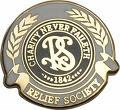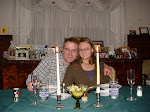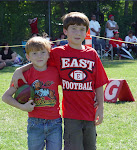“Most people have learned to live in the moment” (Einsteins Dreams, May 3, 1905, Alan Lightman, 1993). Einstein further states that:
The argument goes that if the past has uncertain effect on the present, there is no need to dwell on the past. And if the present has little effect on the future, present actions need not be weighed for their consequence. Rather, each act is an island in time, to be judged on its own. Families comfort a dying uncle not because of a likely inheritance, but because he is loved at that moment. Employees are hired not because of their resumes, but because of their good sense in interviews. Clerks trampled by their bosses fight back at each insult, with no fear for their future. It is a world of impulse. It is a world of sincerity. It is a world in which every word spoken speaks just to that moment, every glance given has only one meaning, each touch has no past or no future, each kiss is a kiss of immediacy.
Each person has a vision for their moment, what they want in that moment, why they want it. Where do those desires, needs, passions, and impulses come from? How do we become to understand our own views of reality in order to appreciate the moments we are given? What can we do to better appreciate the vision of others? Can we find happiness in blindly following paths laid before us or is it critically important to find our own way and keep focus on our personal vision?
Reading the very diverse opinions in the Constructing a Life Philosophy I have gained a greater sight of others viewpoints, and have ascertained a better vision of my own opinions. I particularly chose to reference Chapter 7; What Should We Strive For, and its relationship to Chapter One; The Importance of Choosing a Life Philosophy. However, there is a great deal of alternate views expressed between those chapters that effected my own views and vision for writing this paper, specifically relating what I have gained from engaging thoroughly in the text.
First, Chapter 1 addresses viewpoints from a contemporary psychiatrist, an ancient philosopher, and two students of philosophy, religion and myth. Each essay presented the authors personal vision as to the best way that we as humans can base our life’s decisions and the necessity of seeing life’s purpose.
M. Scott Peck, contemporary psychiatrist, in his essay Choosing a Map for Life challenges readers to “examine how they [view] the world and how they [view] themselves” (17). Peck uses the word view in a rhetoric way to grab the reader’s attention that if a person does not “more clearly…see the reality of the world” their minds can be deceived by “falsehood, misperceptions and illusions” (18). If we do not know where we are headed in our lives we can be blinded, if we do not seek for a way, have a plan (a map) for our lives then our view is obfuscated. He particularly discussed our dependency as children, our reliance upon the opinions and views of our parents and other adults influencing our lives. Theirs and our views are also dependant upon circumstances. Oft times I believe that we interfere with the experiences of others as we try to protect or obscure their understanding of the issues around them. In this we are taking away from them the experience they should have and replacing it with experiences we want them to have. This distorts their view of the world, and therefore changes their life’s map. Peck also discusses how we “denounce the new information even attempt[ing] to manipulate the world so as to conform to our view of reality (19).
Plato, a philosopher from Ancient Athens taught metaphorically that we must not live as though we are in a cave. His essay, Are We Living in a Cave?, shows the effects of a society that is unteachable, who mock the idea of higher learning, education and thinking. He discusses the fear of pain and hurt, that holds us back from striving for something different, better; excellence. He states that oft times people are too quick to accept things as they see them without consideration of a different way, a different world saying, “people too quickly accept the first appearance of things”; in a “what you see is what you get” kind of way. He uses the idea of “fetters” to indicate the confinement of only looking forward, “I don’t see how they could see anything else if they were compelled to keep their heads unmoving all their lives.” If we are to remove our fetters as a society we have to be teachable, accepting diversity, understanding different views, letting go of narrow mindedness, recognizing that growth is painful, but for a moment. He suggests that if we live through each season, then we will better understand the whole of it.
Philosophy, religion, and myth students; Sam Keen and Anne Valley Fox in their essay, Discovering Our Personal Myth, discuss myths and how they form our views of our world. Myths create a “habitual way of seeing things” (33). They associate our values and cultures as being influential, even programming our beliefs. They also suggest that we don’t see what we know or think to be truths as myth, only what others believe. They say, “myth gives us security and identity, it also creates selective blindness, narrowness, and rigidity because it is intrinsically conservative” (35) Their essay caused me to think a great deal on the influences that parents have, and how parents views influence the choices of children. It is important to consider their ideas, “whoever authors your story authorized your actions” and return the sense of self to individuals allowing them to experience and see life in order to create their best individual vision.
By holding onto the views of someone else; your parents, teachers, you are suffocating your ability to see for yourself who you have the potential to become. First opinions are essential to our understanding of the nature of things but as the evidence changes; as we are exposed to more knowledge and experience, so must the theories by which live. We can be influenced by positive experiences, letting go of negativity, and moving into each moment with clarity of our unique vision. In order to understand the true meaning of life each person has to find their own qualities, beliefs, values, integrating with the understanding of others beliefs, recognizing that no one person’s views are completely right for all people; each person is uniquely right for their own individual life’s purpose.
Second, Chapter 7’s focus is What Should We Strive Towards. The essays range from the opinions that we should be concerned about moral standard, education and health (Jefferson), love, creativity and understanding (Toynbee), divine love, wisdom, living as Jesus did (Hallesby), morality of thought and action, quest for perfection (Franklin) and (Machiavelli) accepting both good and evil in the quest for renown, and acquisition of power.
In the essay Develop an Honest Heart, letters compiled to a nephew, Jefferson places highest importance on an honest heart, a knowing head, and good health. He discusses that we all need to seek for these virtuous dispositions and that by consistently practicing them they will become habitual. His words invite readers to recognize the simplicity of doing what is instinctually right and that by doing right “be assured that [right] will extricate you the best out of the worst situations. Tho’ you cannot see when you fetch one step, what will be the next, yet follow truth, justice, and plain dealing, and never fear their leading you out of the labyrinth” (179).
Toynbee’s essay Seek Love, Creation, and Understanding, presents his belief that we must sacrifice to find the meaning of life. Love, understanding and creating are of ultimate importance and by seeking these ultimately we must sacrifice. He stated, “A human being’s life is a constant struggle between the rational and the irrational side of human nature” (208). The specific sacrifice and struggle I felt he was associating with was the intensity in understanding and accepting others values with a respect for their diversity; understanding that values differ based on environments, cultures and experiences, and although unlike a person’s views cause discomfort. Simply loving and understanding others, “what you don’t know really won’t hurt you” mentality, is key to his belief. Of his values, love being the value that binds the wound of a world broken by cultural difference and misunderstandings. Love begetting compassion, begetting tolerance, begetting respect, begetting non-violence, begetting special happiness, begetting a sense of peace, begetting well-being.
In Ole Hallesby’s essay titled Live for Others as Jesus Did he states “how inhuman the life was which I had been living. Jesus lived His life for others. I had lived my whole life for myself, in petty selfishness, pride and pleasure,…” (189). He first rhetorically engages the reader in stating that “the best men and women of each generation have been the ones who have sacrificed the most time and energy to ascertain the meaning of life” (184). This statement gives a reader a sense of ownership in being the best by sacrificing time to find purpose and meaning in their lives. He then goes on to address his journey in finding his purpose.
Aim for Personal Perfection is the title of Benjamin Franklin’s essay taken from his autobiography. His goal was certainly high for he “wished to live without committing any fault at any time” (197). He discusses his 13 virtues; temperance, silence, order, resolution, frugality, industry, sincerity, justice, moderation, cleanliness, tranquility, chastity, humility, and relates that it isn’t enough to want to change but that we have to be committed to breaking old habits and acquiring new ones. While he admits that he never achieved all 13 virtues to perfection, he did find that he was a better person and a happier individual.
Machiavelli’s focus was a great contrast to these previous viewpoints. His essay titled Be Powerful generously discusses the reality that if you want power and renown that you can’t be nice about it. You have to engage in both good and evil, whichever suits the circumstances of that moment. To become successful you “cannot observe all those things which are considered good in men” (194). His opinion is that to observe peace and good faith would be to lose power and renown.
A common thread among these, including Machiavelli’s, and many of the other viewpoints, is happiness. We all seek for happiness. In Chapter 4, How Should We Make Moral Decisions, the Chapter preface quotes Robert Ringer’s viewpoint that it is possible to find “a simple, uncomplicated life” by simply “looking out for number one” (127). In whatever path we take happiness comes from accepting the destination of that path. Of happiness Franklin can be quoted saying, “I never arrived at the perfection I had been so ambitious of obtaining, but fell short, yet I was by the endeavor a better and a happier man than I otherwise should have been if I had not attempted it” (201). In summarizing Franklin the Chapter Preface states, “Franklin explains that the effort was worth it, because he did learn about his weaknesses” (177). At times the pursuit of happiness does not bring happiness. Shakyamuni Buddha said, “There is no way to happiness—happiness is the way” (115). Russell Conwell’s Inspiring Book About Opportunity: Acres of Diamonds tells a familiar story of a Ali Hafed. Ali Hafed had once owned a great deal of land. He farmed, had orchards, grain fields and gardens, and because of all that he had he had money. He felt content until he heard from an ancient Buddhist priest how the world was made and in that creation diamonds were made. The priest told Ali Hafed that if he could find a diamond the size of his thumb that he would be able to have his own country, if he had a mine that he and his posterity could be kings and queens. After hearing this, the wealthy Ali Hafed went to bed a poor man. He sought after the priest and learned how to find diamonds. He was told that if you find a river that runs through white sands, between high mountains you will certainly find diamonds. Ali sold all that he had and went on his quest for diamonds. He looked the world over and died a poor, afflicted man. The story goes on to say:
The old Buddhist priest came to visit Ali Hafed’s successor, and the moment he opened the drawing-room door he saw a light on the mantle, “Here is a diamond! Has Ali Hafed returned?” The successor said no, and that is not a diamond, it is only a rock. The priest was sure and said positively it is a diamond. Together the priest and successor rushed out to the garden and stirred up the white sands and “there came up other more beautiful and valuable gems than the first”. Ali Hafed’s land was discovered to be the diamond mine of Golconda, the most magnificent diamond mine in all the history of mankind. Had Ali Hafed remained at home and dug in his own cellar, or underneath his own wheat field, or in his own garden, he would have had ‘acres of diamonds’ (13).
Happiness, as discussed in the many viewpoints relates to this very idea, it is in the eye of the beholder, and is truly not the reward, the reward that brings happiness is in the way that life is lived and appreciated. Chapter 4, viewpoint 7 discusses the unintended evil that comes at times by making choices without thought to the harm that it causes others. It says of happiness,
The Self Can Be a Prison – Where outward circumstances are not definitely unfortunate, a man should be able to achieve happiness, provided that his passions and interests are directed outward, not inward. It should be our endeavor….to adjust ourselves to the world, to aim at avoiding self-centered passions and at acquiring those affections and those interests which will prevent our thoughts from dwelling perpetually upon ourselves (174)
It is a surprising reality for me to realize how some personal choices and seemingly ordinary behavior can contribute to the evil and in humane consequences, many times indirectly and without knowledge of the person. The chapter interestingly discussed Hitler’s behavior as being made capable by the actions and submissions of ordinary people. He states that his use of the word evil is “behavior that deliberately deprives innocent people of their humanity, from small scale assaults on a person’s dignity to outright murder” (172). In that context a person really has to consider their behavior towards others and indirectly in a personal pursuit for happiness. Individual happiness should not come at the expense of another human being.
Additionally the chapters relate to each other in discussing pride. In chapter 2, viewpoint 2 Finding Personal Peace with God Gives Life Purpose Charles W. Colson discusses his reaction to reading the autobiography of Richard M. Nixon, Born Again. He rhetorically suggests that pride is a cancer, “For Pride is a spiritual cancer: it eats up the very possibility of love, or contentment, or even common sense” (50). As Ole Hallesby is quoted earlier stating that he had lived his whole life in selfishness, pride, and pleasure…(189). And in the chapter How Do Religions Give Life Meaning? Bob George presents Christianity and particularly the bible as the only way to find God. Of pride he says, “Proud people cannot receive grace because they will not receive grace. They are convinced of their own sufficiency and enamored by their own ability” (100). Franklin summarized that, “In reality there is, perhaps, no one of our natural passions so hard to subdue as Pride” (203). In each viewpoint that presents pride, it is indicated that it is a destroyer of finding our personal happiness.
In reading each viewpoint I had to set aside my own beliefs and convictions, understanding that each person had walked their own path to come to the conclusions and beliefs that they had. These are their visions, their truths, it is what they know. I do not have to believe them personally but I can accept them as reality, not myth. In wanting others to understand me for my diversity, I must understand them.
One thing that was certain to many was that we all came from somewhere; there was indeed a creation, if not by God, then by some scientific reasoning. In Chapter 2, viewpoint 4, one religion stated, “By faith we understand that the universe was formed at God’s command, so that what is seen was not made out of what is visible” The Bible, Hebrews 11: 3 (67). Chapter 3 How Do Religions Give Life Meaning, “Religions very often dominate peoples search for meaning of life” (75). And presuming that a person has a belief or knowledge of a God or of a greater being, and then by acknowledgement of that any person’s opportunities are infinite. In contrast, the preface to Richard Robinson, Chapter 2, viewpoint 1, Life Has No Purpose – We Create It, suggests that “life has no meaning. Since he believes there is no God, there cannot be a particular goal or meaning for our lives… [Robinson] challenges his readers to create their own purpose for life” (39). With respect for all beliefs in finding their purpose, every being can achieve immeasurable content and happiness.
Each persons desire to find meaning in their life is a personal quest; an individual journey; and each person through their desire to see purpose in their life, can. Knowing what is important to you personally, in every moment, understanding your views of reality and appreciating the gift of each opportunity. Seeking for a greater understanding of the diversity in others values based on their unique experiences, cultures, and environments has purpose in our own happiness.
I have gained a greater knowledge of these things and have a more perfected individual vision for my life. I have found that in engaging in others rhetorical views that my vision is clearer, I know myself better. For me it is important to know what I want, what I believe, to be aware of and accept others for their personal beliefs. This has been a valuable experience for me. It made me think more about the affirmations that I have engaged in for my life, I have a broader vision now and will certainly be revising them, particularly reflecting upon Benjamin Franklin’s 13 Virtues in his aim for perfection. I also appreciate the testament that happiness is not to be achieved but lived in every moment. I hope to be able to emulate these things in my life. Dr. Seuss is known for saying many great things, one that comes to mind, “You have brains in your head. You have feet in your shoes. You can steer yourself in any direction you choose. You’re on your own. And you know what you know. You are the guy that will decide where to go.”
Great philosophy, like anything, is what you make of it. Constructing a Life Philosophy, as suggested by the title of the book, is a process. In constructing anything a great deal of material is involved. In any great construction if only one material or tool were used, it would not be successful or even possible. In considering many opinions, views, and understanding others I know that I will be able to have a better personal philosophy; allowing me to live happily in each moment.
References used in addition to the book:
Lightman, Alan. Einstein’s Dreams. New York: Warner Books, 1993.
Seuss, Dr. Oh, The Places You’ll Go. New York: Random House, 1990.
Webb, William R., Russell Conwell’s Inspiring Book About Opportunity: Acres of
Diamonds. Missouri: Hallmark Cards Inc., 1968
Thanksgiving 2025
-
Today is the day!
Thanksgiving!
I pulled it off, and am so grateful!
We had good food, I set the table, and even put on a lovely dress.
This morning, Jane,...
1 month ago















































.jpg)















No comments:
Post a Comment